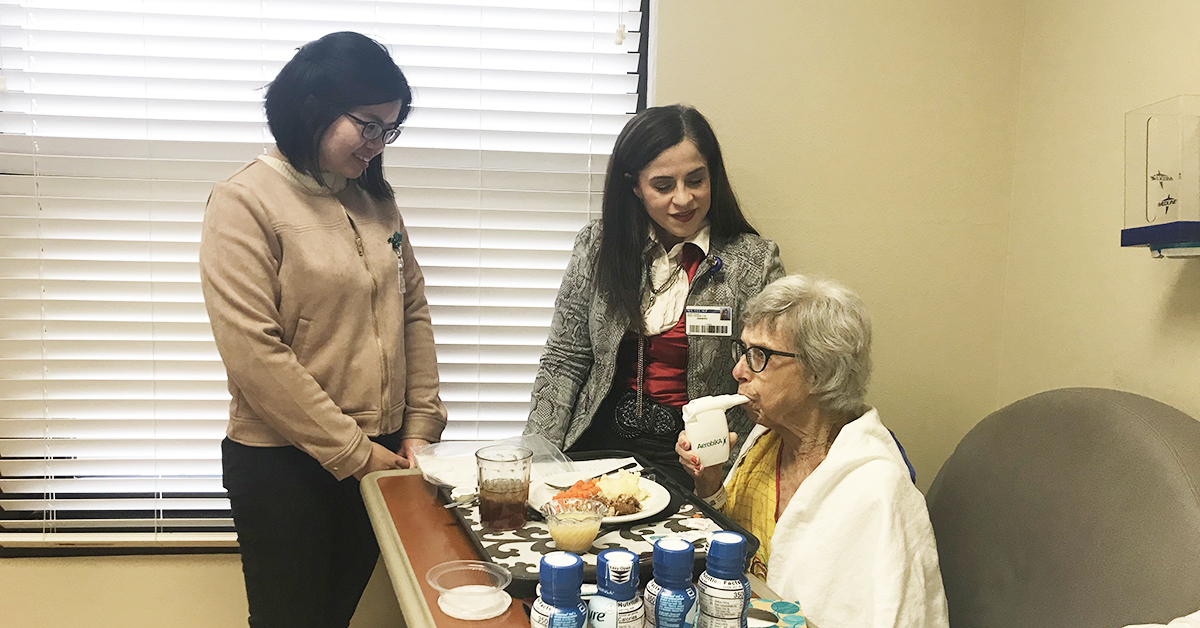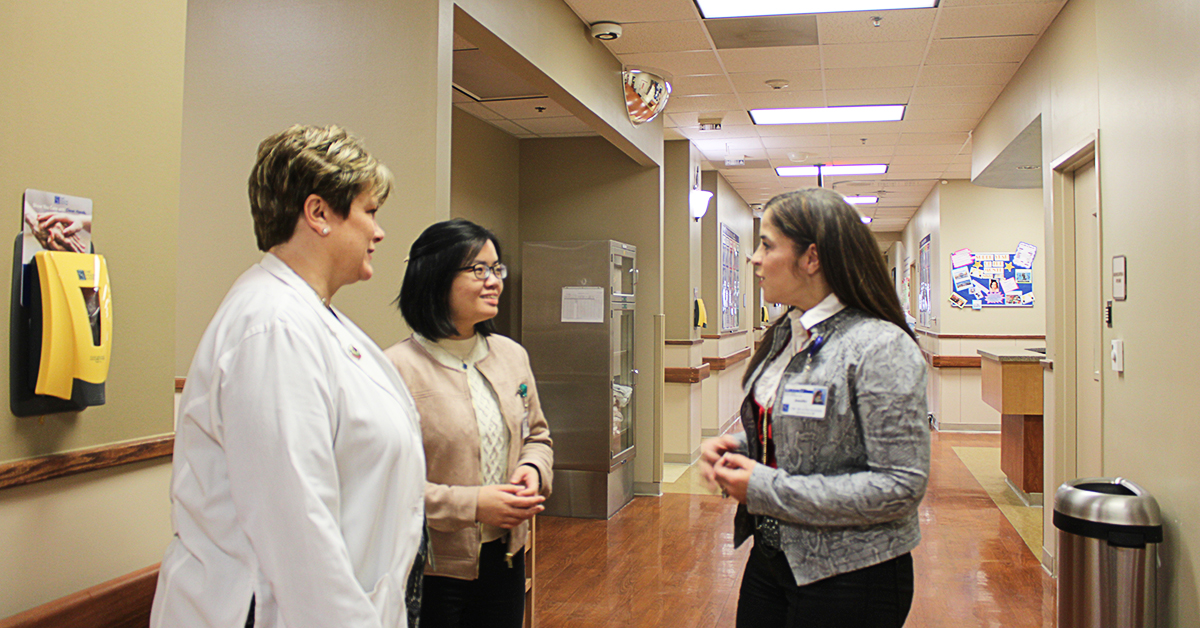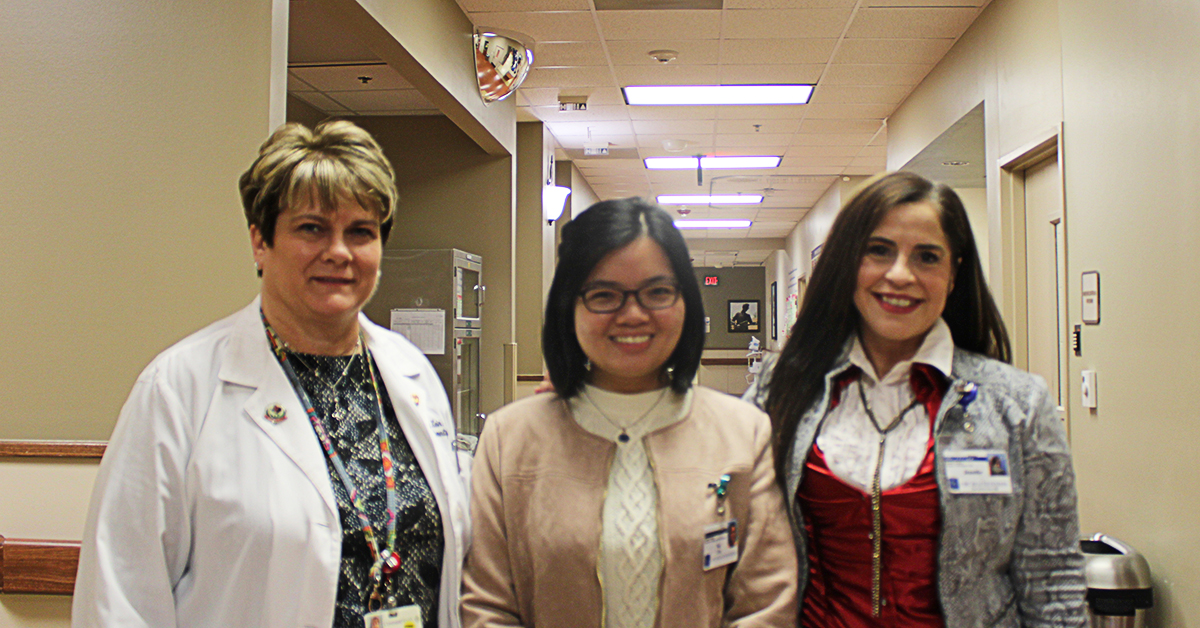Care Beyond Recovery
Palliative Medicine teams work to improve the quality of life for patients

Palliative Medicine works to maximize function amid critical illness and helps assist them in improving the quality of their lives beyond the physical realm.
With life-limiting illness, there is a growing need for early and holistic patient care throughout the world. Health care providers for patients with life-threatening diagnoses are working to improve understanding of palliative care, a division of medicine focused on relief of suffering from diagnosis of terminal illness to eventual bereavement.
Palliative Medicine is growing, especially here in West Texas. This is a team-centered approach to health care that not only helps patients maximize function amid critical illness, but helps assist them in improving the quality of their lives beyond the physical realm. Psychological, cultural, and spiritual support mechanisms are essential in effective palliative care.
Kelly Klein, MD, says, “Palliative Medicine takes an interdisciplinary approach to try to figure out what’s best for a patient, taking into account their goals, their values, and the whole story about a patient. We then as a team get to know the patient and make recommendations on the pathway they want to take for care.”
Palliative care involves key practitioners early on who work as a team to determine evidence-based intervention for temporary rehabilitation and long-term comfort as terminal illness progresses. Palliative care providers use principles of biomedical ethics to ensure that patients’ wishes are addressed, harm is avoided, good is achieved, and fair and equitable health care is delivered. A physician or mid-level provider will consult other health care experts who specialize in advanced nursing, speech-language pathology, physical therapy, and occupational therapy to help navigate patients’ severe illnesses and decide the best plans of care.

“Palliative care is best done as a team.”
The Palliative Medicine efforts at Texas Tech University Health Sciences Center (TTUHSC) and University Medical Center (UMC) Health System are fostering global partnerships by collaborating with individuals all over the world. Sui Ling Lee, a speech-language pathologist from Princess Margaret Hospital of Hong Kong, visited TTUHSC and UMC to gain exposure to this team-centered approach of palliative care. The China (Hong Kong) Hospital Authority could have selected any location worldwide for her training. Lubbock was chosen based on information about TTUHSC and UMC shared by speech-language pathologist, Jennifer Hanners-Gutierrez, during a 2016 keynote address for the Nutrition and Feeding in Palliative Care, Hong Kong Symposium and the relationship Hanners-Gutierrez has maintained with health care providers in China.
Lee shadowed palliative care physicians, mid-level providers, and speech-language pathologists Hanners-Gutierrez and Kristen Bradshaw to gain exposure to palliative care course curriculum and hospital best practices. During her visit, Lee discussed many things she learned to take back to China.

Kelly Klein, MD, Sui Ling Lee, and Jennifer Hanners-Gutierrez
Lee says, “Before coming here, I was expecting to see a lot about what a speech therapist can do in palliative care, like evaluating and treating feeding and swallowing problems. But I have become aware that it is actually teamwork, not just the speech service--but actually they work as a team with a focus on how to provide the best care for the patient.”
One of the central components to the success for palliative care at TTUHSC and UMC has been the role of health care providers who see the big picture for complete and team-centered care.
Jennifer Hanners-Gutierrez, Ph.D. (effective December 2019), TTUHSC speech-language pathology graduate and speech-language pathologist for UMC says, “A speech-language pathologist is consulted to provide clinical information to the physician or mid-level provider who ultimately has the very hard challenge of helping the patient choose aspects of health care, such as oral or tube feeding when swallowing problems are present. We need physicians and providers who are open to a relationship with our therapy discipline and willing to include us as part of the team.”
Both Klein and Hanners-Gutierrez call for continued interdisciplinary, “total” care of patients with terminal diagnoses and promote a team-centered approach. Klein has supported palliative care through advanced medical curriculum and physician fellowships, and Hanners-Gutierrez has worked with Klein to nurture exceptional teamwork for patients receiving care in the Supportive Care Unit and throughout University Medical Center.
Klein shares, “There's not enough geriatricians and palliative care doctors to take care of the needs of our aging population. So, part of our goal to is not only provide that care, but also to teach others.”
“Palliative care is best done as a team,” shares Hanners-Gutierrez. As awareness and education for Palliative Medicine increases, the palliative care teams at TTUHSC and UMC work to provide the best possible health care and outcomes for patients with life-threatening disease or injury.
Related Stories
Celebrating Veterans: TTUHSC’s General Martin Clay’s Legacy of Service and Leadership
From his initial enlistment in the Army National Guard 36 years ago to his leadership in military and civilian health care management roles, Major General Martin Clay’s career has been shaped by adaptability, mission focus and service to others.
Texas Tech University Health Sciences Center School of Nursing Named Best Accelerated Bachelor of Science in Nursing Program in Texas
The TTUHSC School of Nursing Accelerated Bachelor of Science in Nursing (BSN) program has been ranked the No. 1 accelerated nursing program in Texas by RegisteredNursing.org.
TTUHSC Names New Regional Dean for the School of Nursing
Louise Rice, DNP, RN, has been named regional dean of the TTUHSC School of Nursing on the Amarillo campus.
Recent Stories
The John Wayne Cancer Foundation Surgical Oncology Fellowship Program at Texas Tech University Health Sciences Center Announced
TTUHSC is collaborating with the John Wayne Cancer Foundation and has established the Big Cure Endowment, which supports the university’s efforts to reduce cancer incidence and increase survivability of people in rural and underserved areas.
TTUHSC Receives $1 Million Gift from Amarillo National Bank to Expand and Enhance Pediatric Care in the Panhandle
TTUHSC School of Medicine leaders accepted a $1 million philanthropic gift from Amarillo National Bank on Tuesday (Feb. 10), marking a transformational investment in pediatric care for the Texas Panhandle.
Texas Tech University Health Sciences Center Permian Basin Announces Pediatric Residency Program Gift
TTUHSC Permian Basin, along with the Permian Strategic Partnership and the Scharbauer Foundation, Feb. 5 announced a gift that will fund a new pediatric residency.
